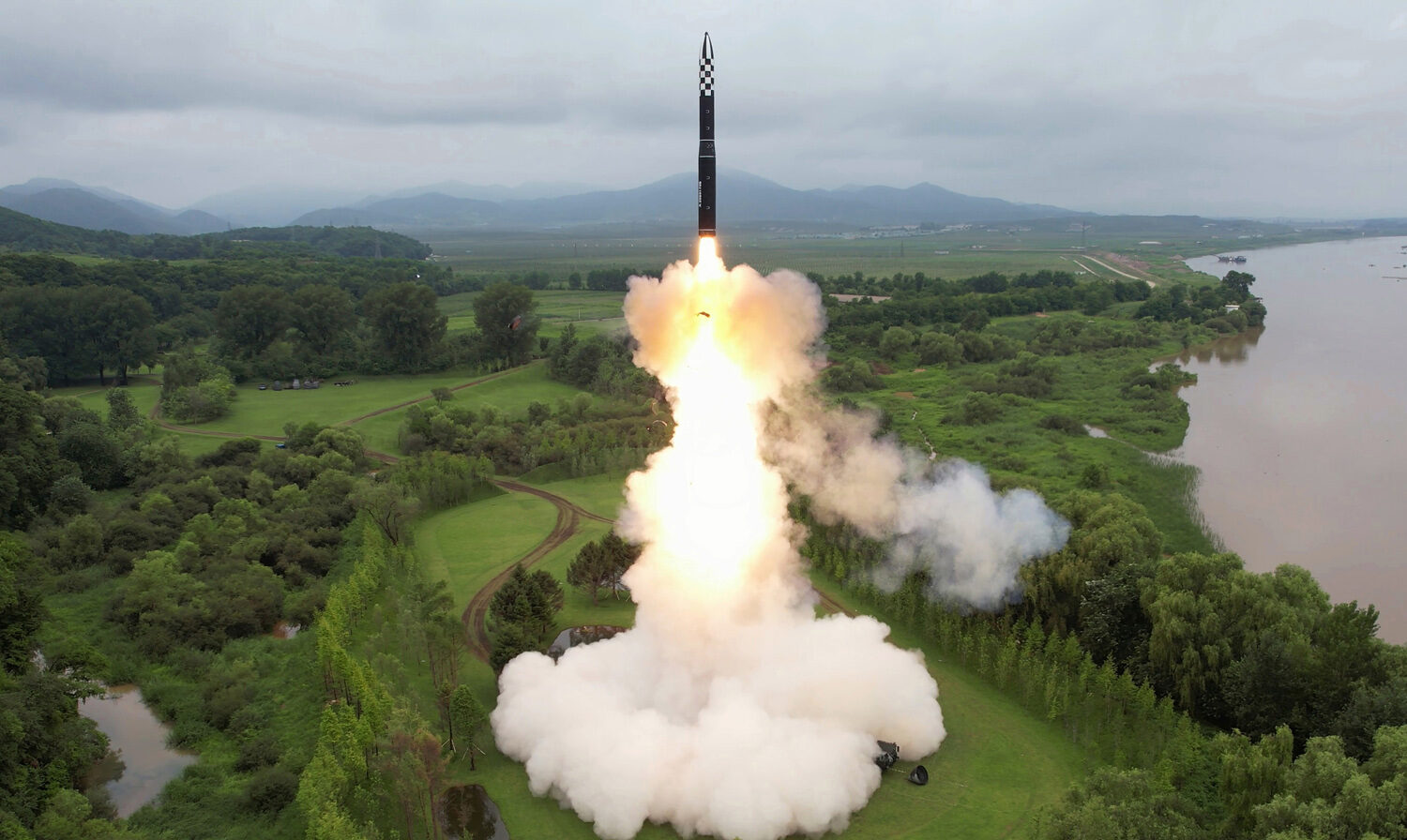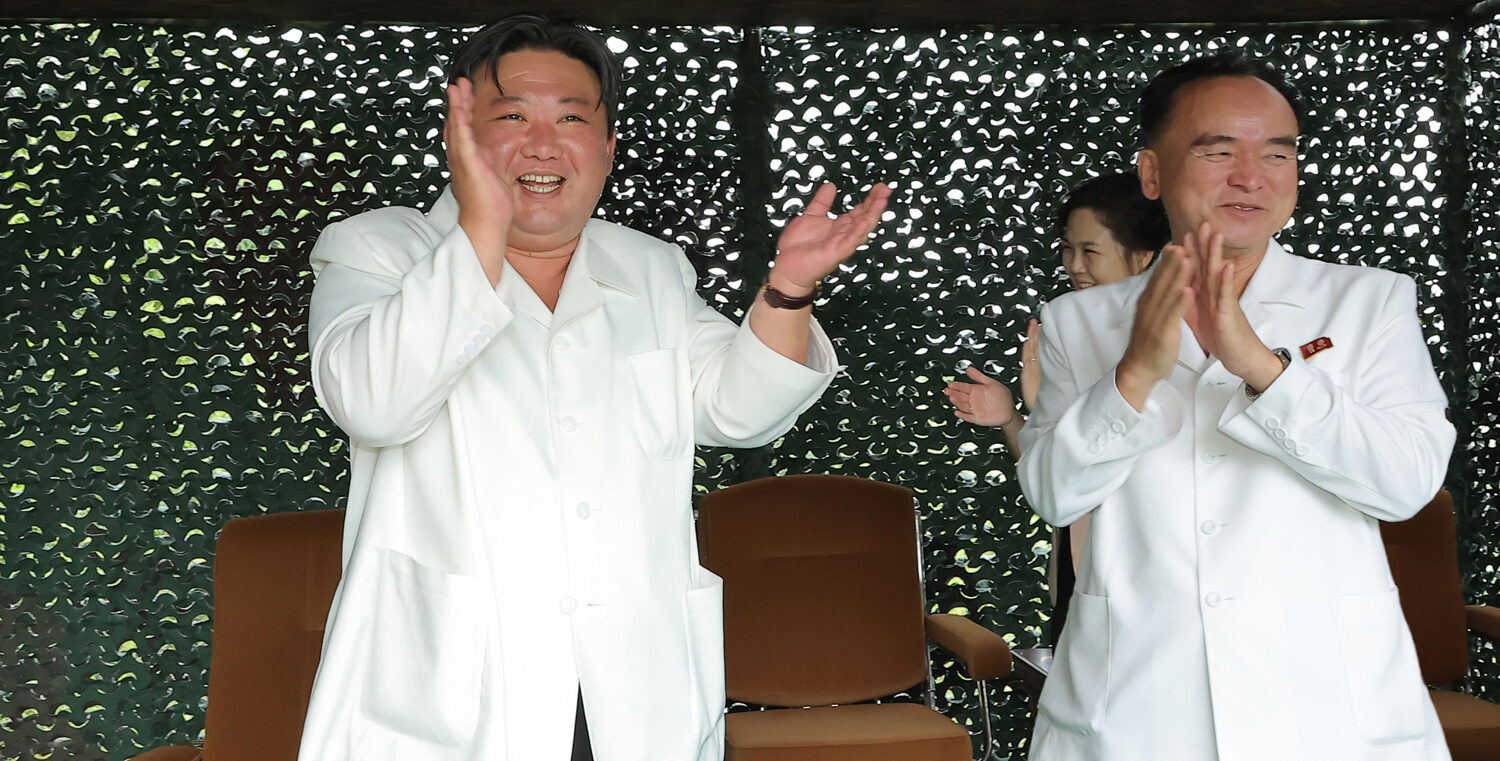
The test fire of North Korean Inter Continental Ballistic Missile on July 12, 2023. Photo source 'naenara'.
Washington: North Korea (Democratic People’s Republic of Korea – DPRK) test launched yet another Intercontinental Ballistic Missile (ICBM) on July 12, 2023. This follows the launch using ballistic missile technology conducted on May 31, 2023, along with the launches of two ballistic missiles on June 15, 2023.
DPRK said the test fire was aimed at re-confirming the technical creditability and operational reliability of the new-type ICBM weapon system.
North Korea’s official website ‘naenara’ said the test fire of the ICBM “Hwasongpho-18”, the core weapon system of the strategic force of DPRK, was conducted by the General Missile Bureau. The missile travelled up to a maximum altitude of 6 648.4 km and flew a distance of 1 001.2 km for 4 491 seconds before accurately landing on the preset area in the open waters off the East Sea of Korea.
Pyongyang claimed the test fire had no negative effect on the security of the neighbouring countries. It said the test fire was conducted according to the “strategic judgment and crucial decision of the Central Military Commission of the Workers’ Party of Korea at a grave period when the military security situation on the Korean peninsula and in the region has reached the phase of nuclear crisis beyond the Cold War era as the US and its vassal forces’ unprecedented military provocations against the DPRK have been intensified”.

Kim Jong Un, General Secretary of the Workers’ Party of Korea and President of the State Affairs of the DPRK, personally guided the test-fire of a new-type ICBM Hwasongpho-18 on the spot.
North Korea justified the launch by accusing the United States of “openly planning to discuss the use of nuclear weapons” against Pyongyang through a meeting of the US-South Korea “Nuclear Consultative Group” which it claimed will be the parent body of the US-Japan-South Korea tripartite nuclear alliance. Apparently responding to this, the G7 foreign minister of Canada, France, Germany, Italy, Japan, the United Kingdom, and the United States of America and the High Representative of the European Union today called on North Korea to engage in “meaningful diplomacy and accept the repeated offers of dialogue put forward by Japan, the United States, and the Republic of Korea”.
Pyongyang though, further accused the US of planning to reintroduce nuclear weapons into the Korean peninsula by sending a US nuclear submarine carrying strategic nukes to South Korea for the first time in 40 years “while clinging to extremely provocative aerial espionage acts even by encroaching upon the sovereign territory of the DPRK”.
Condemning the DPRK, the G7 foreign ministers accused it of violating the United Nations Security Council Resolutions (UNSCRs), which prohibit North Korea from conducting any further launches that use ballistic missile technology. They also called for a “quick, strong, and unified” response by the UN Security Council (UNSC). Obliquely hitting out at China, the G7 said the frequency of North Korea’s “repeated blatant” violations of UNSCRs juxtaposed with the UNSC’s corresponding inaction “because of some members’ obstruction is cause for significant alarm”. China had yesterday stressed that without addressing the absence of a peace mechanism, “which is the crux of the issue”, the Korean Peninsula can “hardly get rid of the security dilemma that generates tension and confrontation”. Beijing even questioned NATO’s recent condemnation of DPRK’s weapon of mass destruction (WMD) and ballistic missile programmes on grounds that “NATO is not a party to the Korean Peninsula issues”.
The G7 ministers today called on North Korea to refrain from “any other provocative actions”, and said the continued expansion of “unlawful” nuclear and ballistic missile capabilities posed a “grave” threat to regional and international peace and stability and undermined the global non-proliferation regime.
“We reiterate our demand that North Korea abandon its nuclear weapons, existing nuclear programmes, and any other weapons of mass destruction and ballistic missile programs in a complete, verifiable, and irreversible manner and fully comply with all obligations under the relevant UNSCRs,” the G7 foreign ministers stated. They made it clear that “North Korea cannot and will never have the status of a nuclear-weapon State under the Treaty on the Non-Proliferation of Nuclear Weapons (NPT)”.
– global bihari bureau




